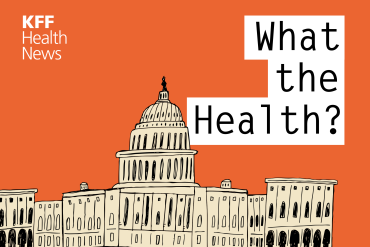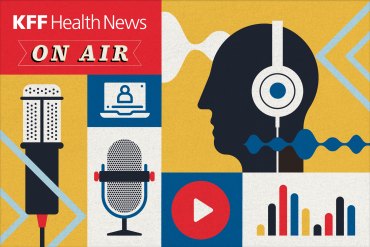La nueva guía de Florida sobre los refuerzos de covid es pura desinformación
Clínicos y científicos denuncian este mensaje como una táctica de miedo con motivación política que también debilita los esfuerzos para proteger contra enfermedades como el sarampión y la tos ferina.
Historic Numbers of Americans Live by Themselves as They Age
Longer life spans, rising rates of divorce, widowhood, and childlessness, and smaller, far-flung families are fueling a “gray revolution” in older adults’ living arrangements. It can have profound health consequences.
La vejez en soledad, así vive un número histórico de estadounidenses
Más de 16 millones de estadounidenses viven solos mientras envejecen. Sorprendentemente, se sabe muy poco sobre sus experiencias.
Tossed Medicine, Delayed Housing: How Homeless Sweeps Are Thwarting Medicaid’s Goals
As California cities crack down on homeless encampments in the wake of a U.S. Supreme Court ruling authorizing fines and arrests, front-line workers say such sweeps are undercutting billions in state and federal Medicaid spending meant to stabilize people’s health and get them off the streets.
In Montana, 911 Calls Reveal Impact of Heat Waves on Rural Seniors
State and local governments are struggling to keep up with the increasing burden of heat-related illness as summers get hotter because of climate change. In Missoula County, Montana, officials are working with researchers to understand trends in heat-related 911 calls.
What the Health? From KFF Health News: Live from Austin, Examining Health Equity
The term “health equity” means different things to different people. Beyond guaranteeing all Americans access to adequate, affordable medical care, the pursuit of equity can include addressing social determinants of health, such as housing, education, and environment. Systemic and historical racism — manifested in over-policing or contaminated drinking water, for instance — can negatively affect health. In a live taping at the Texas Tribune Festival, special guests Carol Alvarado, the Texas state Senate’s Democratic leader, and Ann Barnes, president and CEO of the Episcopal Health Foundation, along with KFF Health News’ Sabriya Rice and Cara Anthony, join KFF Health News’ Julie Rovner to discuss addressing health inequities.
Health Secretary Becerra Touts Extreme Heat Protections. Farmworkers Want More.
Health and Human Services Secretary Xavier Becerra has a plan to protect farmworkers from extreme heat and wildfire smoke, but farmworkers who pick California grapes say they need more, as climate change brings more extreme weather.
El máximo responsable de salud del país, que está barajando la posibilidad de postularse para gobernador, se ha convertido en una de las voces principales de la administración Biden sobre el cambio climático.
As Record Heat Sweeps the US, Some People Must Choose Between Food and Energy Bills
An increasing number of Americans struggle with energy poverty, the inability to adequately heat or cool one’s dwelling. Health officials and climate experts are sounding the alarm as record-breaking heat sweeps the nation.
Patients Suffer When Indian Health Service Doesn’t Pay for Outside Care
The Indian Health Service has a program that can pay for outside appointments when patients need care not offered at agency-funded sites. Critics say money shortages, complex rules, and administrative fumbles often block access, however.
Boom, Now Bust: Budget Cuts and Layoffs Take Hold in Public Health
State leaders are cutting public health spending and laying off workers hired during a pandemic-era grant boom. Public health officials say the bust will erode important advancements in the public health safety net, particularly in rural areas.
Del auge a la caída: falta de dinero y despidos golpean a la salud pública
Ante la pandemia, el Congreso asignó más de $800 mil millones para fortalecer la respuesta de los estados ante covid. Esto resultó en un notable aumento del número de trabajadores de salud pública en todo el país. Ese dinero se ha esfumado.
As Interest From Families Wanes, Pediatricians Scale Back on Covid Shots
Pediatricians want to vaccinate kids, but some say they’re keeping their stockpile of covid vaccines low to avoid being stuck with costly, unwanted shots. They can’t afford to stock up on costly shots that parents don’t want.
Public Voices Often Ignored in States’ Opioid Settlement Money Decisions
In many places, victims of the opioid epidemic are silenced in decision-making about how to use opioid settlement money, a first-of-its-kind survey conducted by KFF Health News and Spotlight PA found.
With Only Gloves To Protect Them, Farmworkers Say They Tend Sick Cows Amid Bird Flu
A Colorado picnic celebrated Farmworker Appreciation Day. But some dairy workers there said they aren’t feeling appreciated: They don’t have basic protective gear, even as bird flu spreads through area farms.
Trabajadores dicen que cuidan a vacas enfermas en medio de la gripe aviar usando solo guantes
En Colorado, los departamentos de Salud y Agricultura dan equipos de protección gratis. Pero dicen que hasta ahora solo el 13% de los productores en tambos los han solicitado.
The New Covid Vaccine Is Out. Why You Might Not Want To Rush To Get It.
Although public health officials recommend the newly approved covid vaccine for everyone 6 months and older, it may make more sense to wait until closer to the holiday season.
Ya está disponible la nueva vacuna contra covid, pero piensa bien cuándo conviene vacunarte
La Administración de Drogas y Alimentos ha aprobado una vacuna actualizada contra covid para todas las personas de 6 meses en adelante, lo que renueva un dilema que ahora es anual: ¿Recibir la vacuna ya, con el brote de covid aún por todo el país, o reservarla para la ola invernal?
Journalists Talk Shooting’s Toll on Children and State Handling of Opioid Settlement Funds
KFF Health News and California Healthline staff made the rounds on national and local media in the last two weeks to discuss topical stories. Here’s a collection of their appearances.
What the Health? From KFF Health News: Let the General Election Commence
Abortion and reproductive health issues headlined the Democratic National Convention in Chicago, as expected. But what Vice President Kamala Harris has in mind for other health policies as the Democratic nominee remains something of a mystery. Meanwhile, former President Donald Trump says he would not use the 19th-century Comstock Act to impose, in effect, a national ban on abortion, which angered his anti-abortion backers. Alice Miranda Ollstein of Politico, Joanne Kenen of Politico and Johns Hopkins University, and Shefali Luthra of The 19th join KFF Health News’ Julie Rovner to discuss these stories and more. Also this week, Rovner interviews KFF Health News’ Tony Leys, who reported and wrote the latest KFF Health News-NPR “Bill of the Month” feature about a woman who fought back after being charged for two surgeries despite undergoing only one.





















